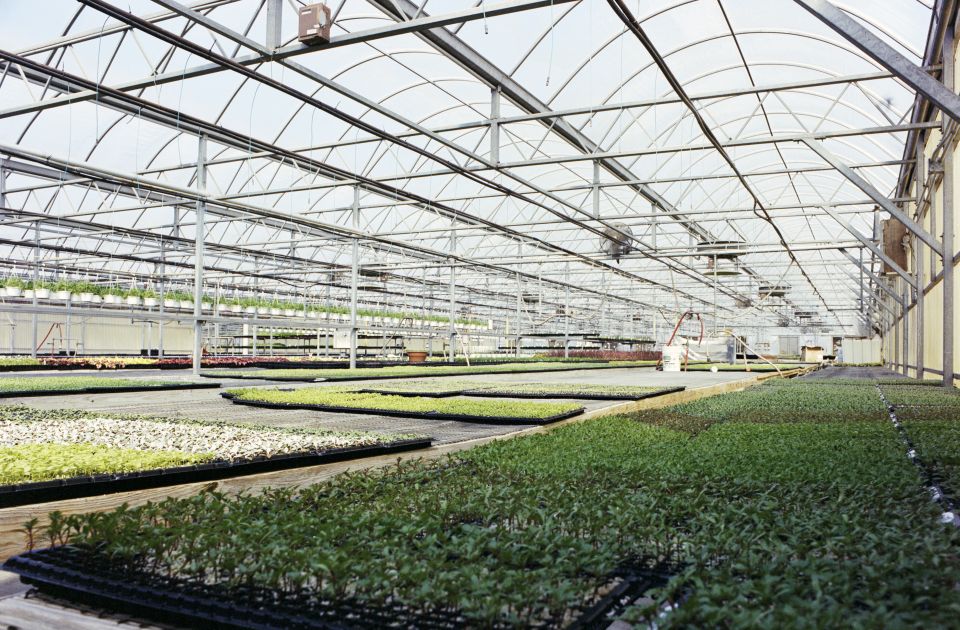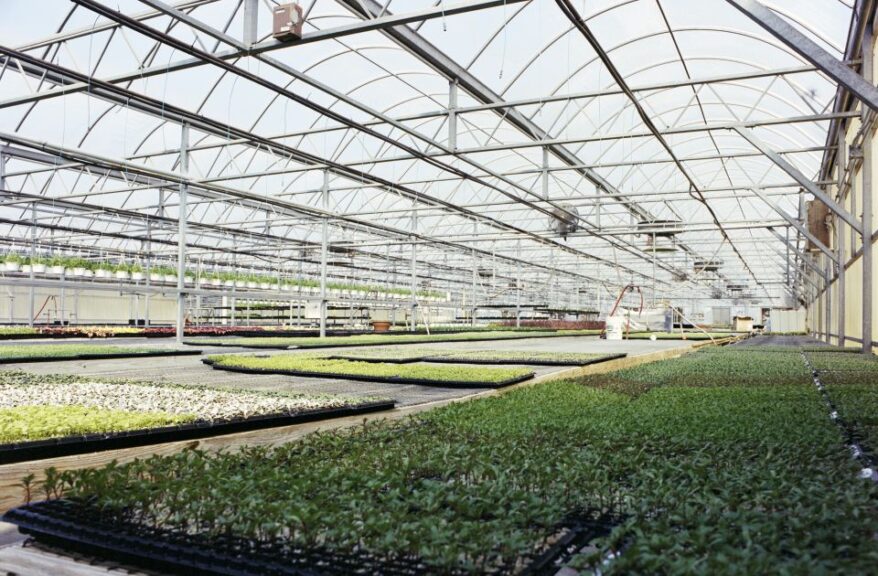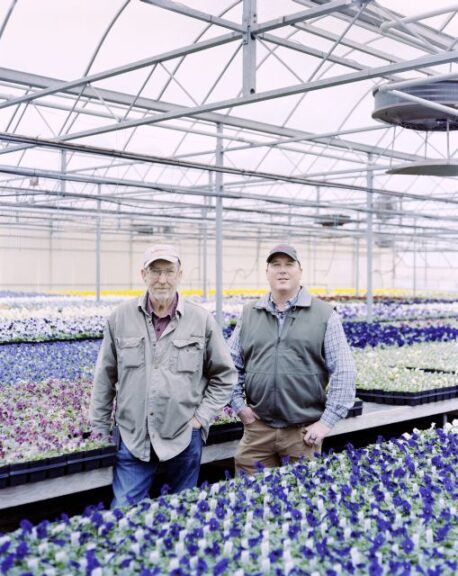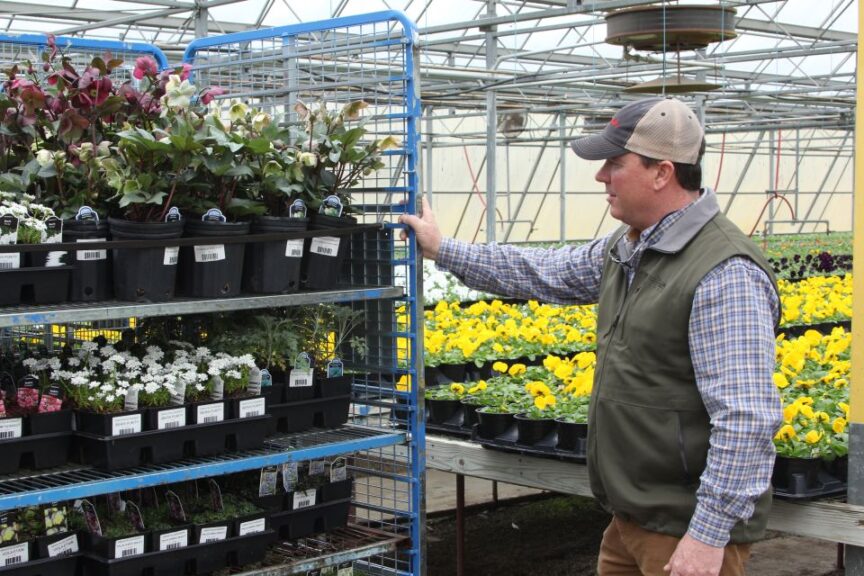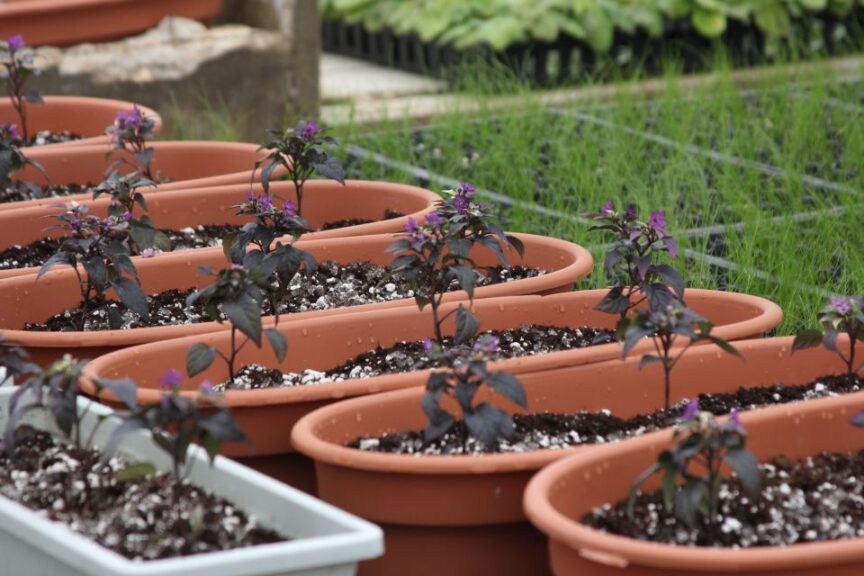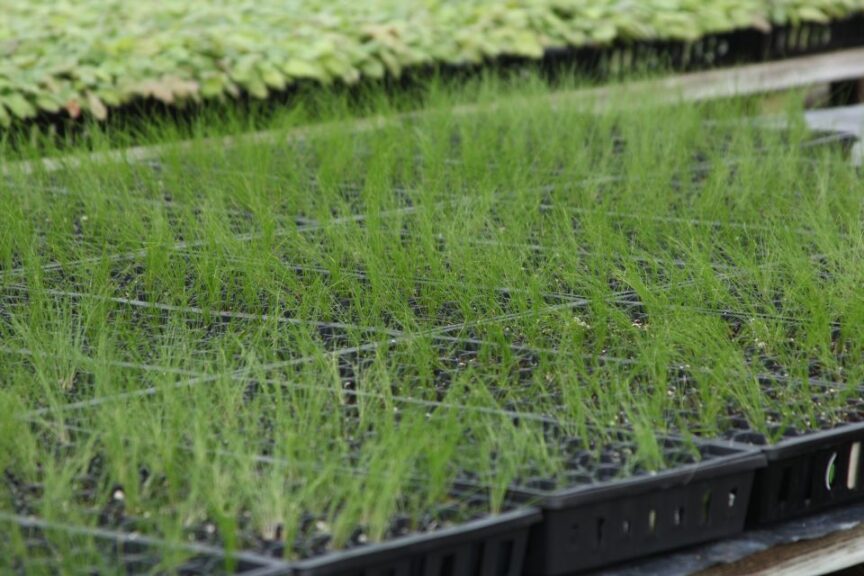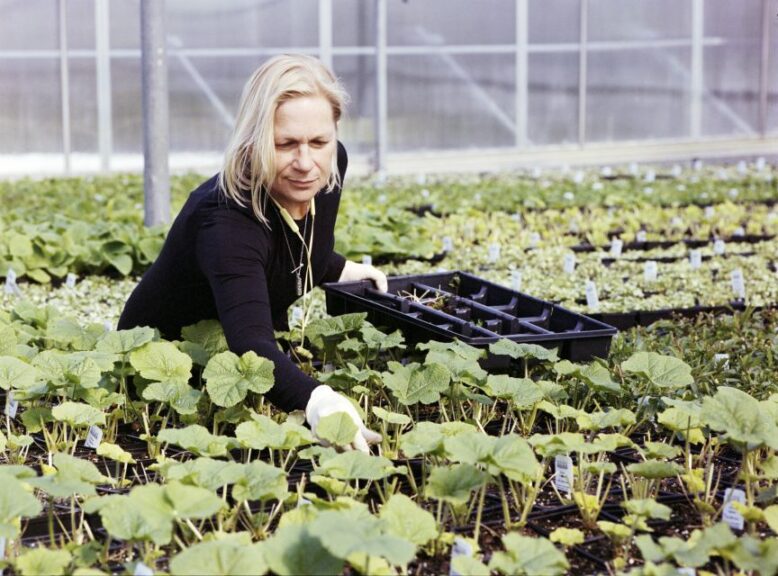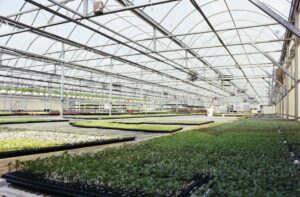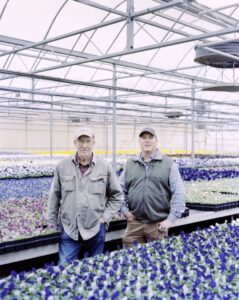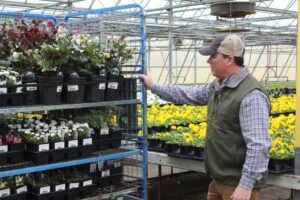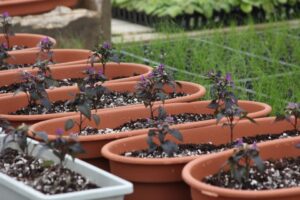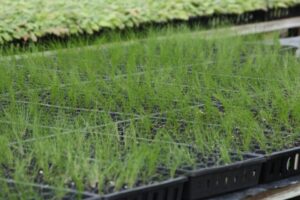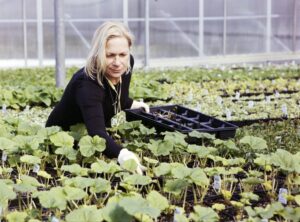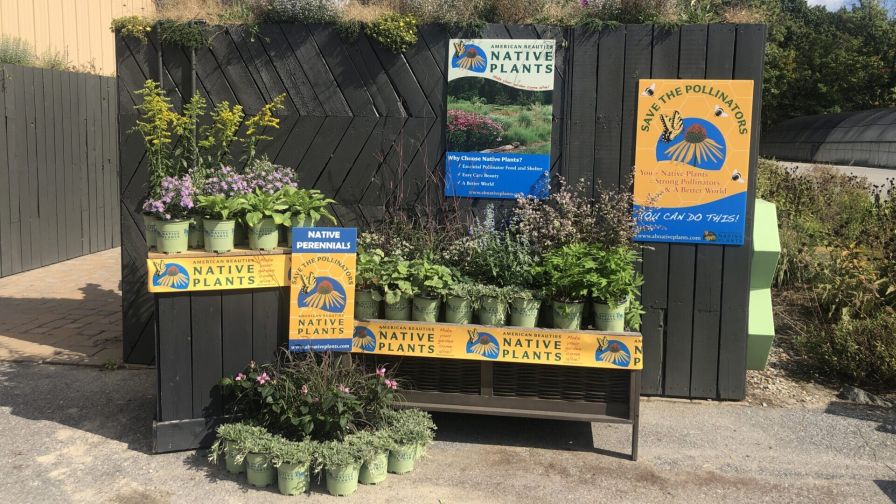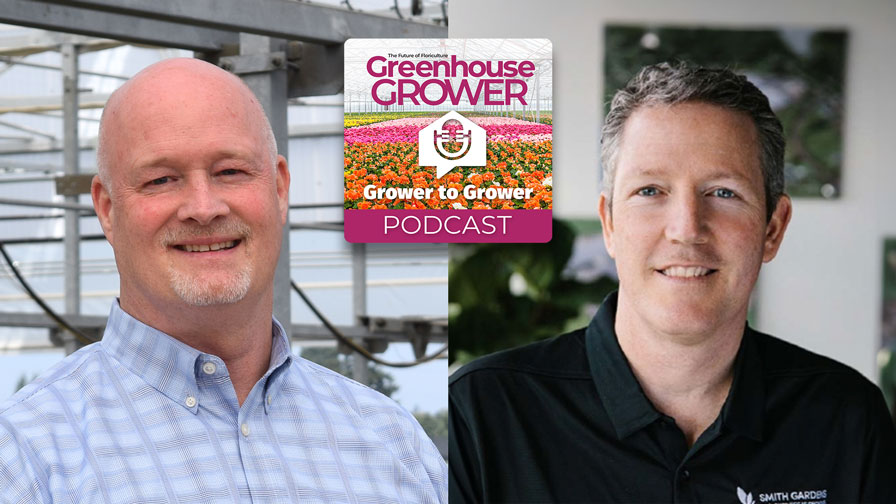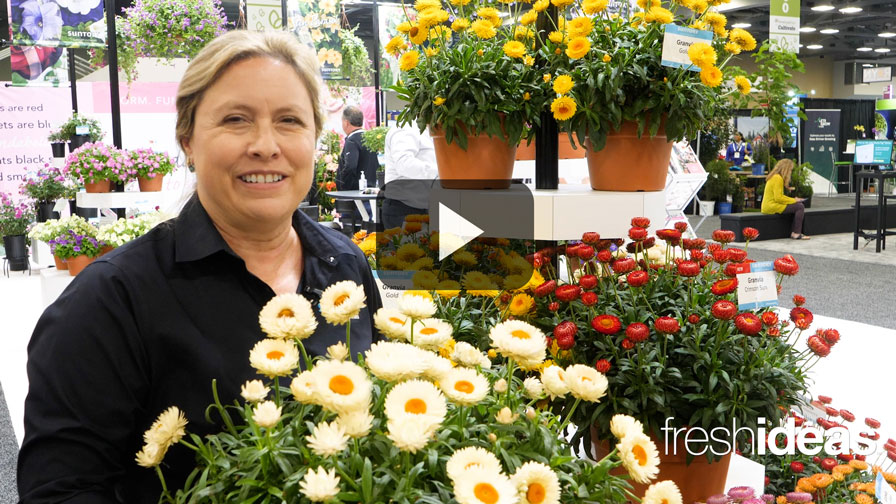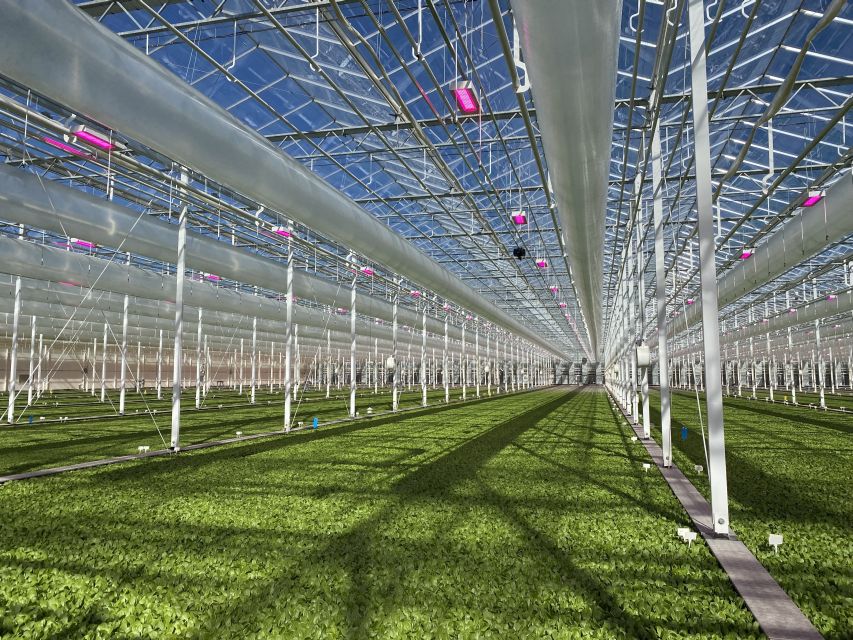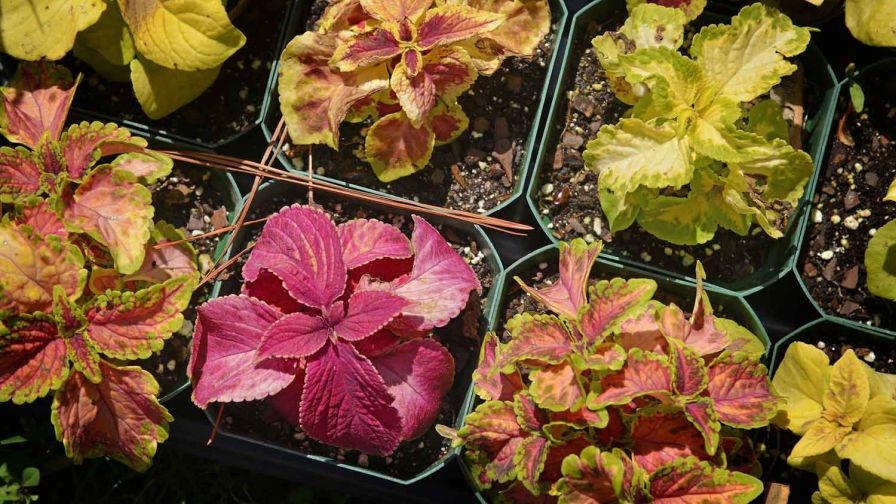Teamwork Drives Success at Babikow Greenhouses
Not many businesses can say that they are 150 years old, but Babikow Greenhouses is proud to celebrate this fact. Babikow, established in 1875, will celebrate its 150th anniversary in 2025. This family business boasts five generations of leaders, and every team member is grateful to be a part of the organization.
Tim Babikow, President of Babikow Greenhouses, says Babikow is one of the oldest horticulture businesses in its region. It is based in Baltimore, MD, and supplies annuals and perennials from Virginia Beach to Connecticut. Tim’s father, Donald Babikow, started working in the greenhouses after school when he was 12 years old. Sixty-three years later, Donald still loves his job.
“I’ll work until I can’t anymore because I enjoy what I do,” says Donald Babikow, Secretary, who grows annuals and pansies.
Third-generation owner Paul Babikow, who just passed away last year, was instrumental in bringing the perennial program to Babikow Greenhouses. During his tenure, he worked hard to position the company as a standout perennial grower in the mid-Atlantic region. Tim Babikow says many wholesale operations offer annuals or perennials, but Babikow has many varieties of both, making it a one-stop-shop for its customers. About 75% of its customers are landscapers, and 25% are retail stores.
Recruiting the Next Generation
Tim Babikow is one of the founding board members of the American Landscape Institute (ALI), based in Baltimore. Many local horticulture businesses teamed up to find the next generation of industry professionals. By partnering with the Sustainable Horticulture Program at the Community College of Baltimore County (CCBC), participating companies offer an internship opportunity by sponsoring a student.
The student attends school every Friday and works toward a certificate. The company pays 80% of the tuition at CCBC and the student pays 20%. At the end of the two-year certificate program, the student receives his or her share of tuition back, allowing the student to graduate debt-free.
“A group of us locally have put this program together to help bring the next generation of horticulture professionals into the industry, so we have the next foreman, grower, salesperson, or manager,” says Babikow, who just retired from serving as president of ALI. “It’s been a successful program. We’re on our seventh cohort so far.”
Even though there’s no guarantee that the students will continue to work at the operation that provided their internship, Babikow says it is worth it to foster education, training, and development within the industry. Several students have moved on to different roles in the industry, but still work with Babikow as customers. The internship is the beginning of a long-term relationship.
“As a company, Babikow has committed to these students to help them along,” Babikow says. “It’s a win-win for both of us.”
One of the biggest challenges facing the operation is labor, he says, due to the rising minimum wage in Maryland. In addition to the increasing cost, there is a shortage in the workforce. Babikow says the operation has been successful in recruiting entry-level workers, but it is more challenging to identify and develop a team of foremen and middle-managers. That is one of the benefits of the ALI scholarship program — cultivating education and experience for younger members of the horticulture industry.
A Positive Company Culture
Hope Geho, Finance Manager, says Babikow Greenhouses takes care of its employees. The company provides dinner on long days in the spring when work spills into the evening. Tim Babikow calls in food trucks and ice cream trucks to show appreciation for their hard work. There are several celebrations throughout the year as well, Geho says, such as the Spring Fling and a Christmas party at Dave & Buster’s.
Several growers also maintain a vegetable garden for the staff. Amelia Sifleet, one of the head growers for annuals, and Donald Babikow plant tomatoes, peppers, cucumbers, corn, and more. They harvest the crops in the summer and give them away to employees at Babikow. The owners and growers who tend to the garden enjoy giving back to the team.
Drones in the Greenhouse
This spring, growers at Babikow are trialing drones on the fields. There are several benefits of using drones for pesticide spray applications, Sifleet says. In her 29 years at the operation, this is the first time that growers are dipping their toes in drone technology.
Tim Babikow first saw the drones during an educational event hosted by the Maryland Nursery, Landscape, and Greenhouse Association (MNLGA). Babikow’s integrated pest management (IPM) specialist connected Tim with the drone operator, Kirk Floyd of Kdrone Services. One of the best parts about drone technology is that Babikow’s employees can be trained to operate the drones in the future. Babikow will trial drones this spring.
“Applicator safety is a huge benefit of drones. You fly them from a distance,” Tim Babikow says. “The way the pesticide is applied, it’s more efficient, effective, and will use less product. There is better control than using a human, because different people have different conceptions of how to spray.”
The Benefits of Biologicals
Sifleet and Anthony Eversmier, a head grower for perennials and propagation, have spearheaded Babikow’s use of biologicals, a component of its IPM program. The use of biological controls, such as beneficial insects, over the last eight years has reduced the amount of chemical pesticides that the operation has needed to use.
“Biologicals are a huge part of what we do,” Tim Babikow says. “We use beneficial insects to start our liners — start it clean and keep it clean.”
Sifleet says the University of Maryland Extension has many educational resources for biological controls, noting that the university has been educating growers on biocontrols for the last 15 years. In order to balance potential health concerns with chemical pesticides and the need to control pests, such as thrips, Sifleet and Eversmier decided to test biocontrols on their crops. They started with perennial liners, found quick success, and kept going.
“The pest level is much lower by using biologicals. The ability to work within the area is increased, because you don’t have to use a re-entry interval (REI) on a regular basis. In other words, you don’t need to spray to control the problem,” Eversmier says of their success with biologicals “As the days lengthen, we will continue releasing more beneficials. Ninety-eight percent of the time, if you choose the proper plant to put them on, you have success.”
When thinking about the future of Babikow Greenhouses, Tim Babikow says he is excited for another 150 years. High-quality crops and excellent customer service have sustained the business so far, and he expects those same values to propel this family business forward for many years to come.
“When I think about what makes Babikow unique, I think about the people I’m speaking with right now,” Babikow says of his team members. Longstanding team members with knowledge, experience, and a tight-knit bond are the cornerstone of Babikow Greenhouses and its ongoing success.
Customer Service Sets Babikow Apart
Babikow Greenhouses takes its customer service seriously. President Tim Babikow says the operation offers next-day delivery most of the year. Aside from a few busy weeks in May, if a customer calls in an order by noon one day, it can be delivered by 7 a.m. the following day. Competitors may build a truck, then send the truck out for delivery when it is full. Babikow does not wait to build the truck, and will deliver when the customer needs the product.
Babikow says customers will speak to a live customer service representative when they call the business, rather than dealing with an automated line and long hold times. This goes for every department, including production and accounting.
“That’s the old family business mentality,” Babikow says.
Some of Babikow’s customers like to see the product live, and they will come to the greenhouse to select exactly which plants they want. Sifleet says many competitors do not allow customers to select their own plants, so this is a benefit for customers of Babikow.
Babikow Greenhouses also provides a two-hour tour for its customers called A Growing Experience at Babikow. Customers and prospective customers have a behind-the-scenes look at production. The tours are by appointment only and usually take place during the off season.
“Educating the customer is just as important as servicing the customer,” Tim Babikow says. “We find it is very valuable to educate folks so they know exactly what goes into growing their plant material. It takes months of planning, production, and growing to get that finished product delivered.”




